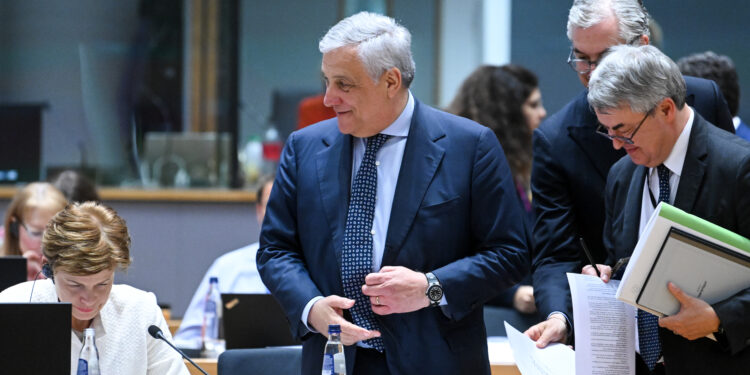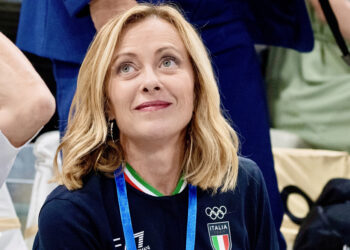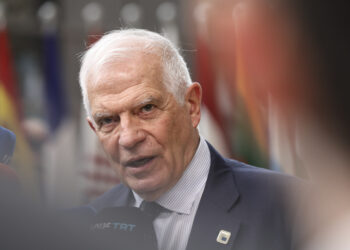Brussels – “The figure of Raffaele Fitto is the best possible one,” Italy’s deputy prime minister, Antonio Tajani, has no doubt about the profile of the Italian candidate for the next European Commission, who assures that the government majority is united in supporting him. He also responded skeptically to the criticisms made earlier this morning by the High Representative for Foreign Policy, Josep Borrell, against the inertia the 27 member states have shown so far on two crucial dossiers: Ukraine and the Middle East.
The Forza Italia leader, in Brussels for the informal Foreign Affairs Council on Thursday (Aug. 29), backed the name of current European Affairs Minister Raffaele Fitto before joining his counterparts in the Europa building. “Tomorrow we will talk about it at the majority summit, then there will be the Council of Ministers,” Tajani continued, stressing that the former president of the Puglia region “is the best person” and on how on his name “there is a convergence from all” the coalition parties. His experience, which the deputy prime minister is sure Brussels welcomes, makes everyone agree: Rome at the Commission needs someone “who will not be an apprentice commissioner but a commissioner.” And yet the Italian government will wait until tomorrow to formalize the appointment, after remaining the last major country in the bloc to have not officially named any candidates yet.
As for the accusations, which were not too veiled, by the head of EU diplomacy against member states before the start of the Council discussions, the foreign minister was rather indifferent. First of all, on Ukraine: “Each country is free to decide” whether to maintain or lift restrictions on the use of weapons sent to Kyiv across the border with Russia, he reiterated, stressing that “for Italy, the position remains to use our weapons within Ukrainian territory.” According to the minister, Rome is sending Ukraine a new battery for the Samp/T anti-aircraft system.
And on the proposal that Borrell advocated again this morning of sanctioning members of the Israeli government,the vice-premier spoke of a “hypothetical period of irrealism.” The goal is “to convince Israel to make choices that will lead to the ceasefire in Gaza because that is the real priority,” Tajani said, arguing that “it is not with the theoretical recognition of Palestine or with sanctions on Israeli ministers that the problems are solved” in the complex picture of the Middle East crisis. “More diplomacy is needed,” he added. The priorities are the immediate cessation of hostilities in the Strip, distributing humanitarian aid to the Palestinian population, and releasing Israeli hostages still in the hands of Islamist groups, he recalled
English version by the Translation Service of Withub
![L'Alto rappresentante dell'Ue, Josep Borrell (sinistra), con il minisrtro degli Esteri ucraino, Dmytro Kuleba [Bruxelles, 29 agosto 2024]](https://staging.eunews.it/wp-content/uploads/2024/08/borr-kul-350x250.jpeg)






